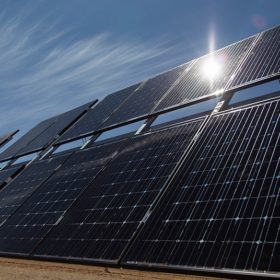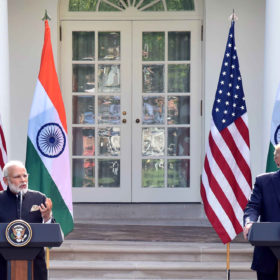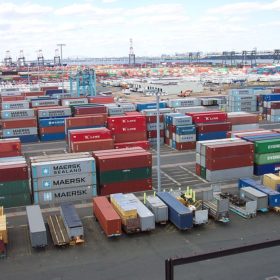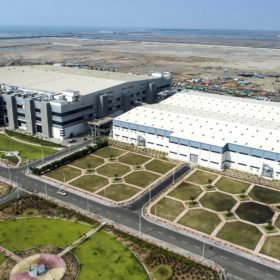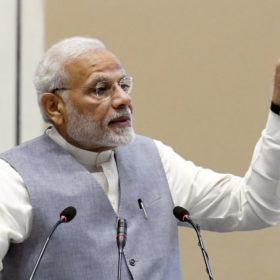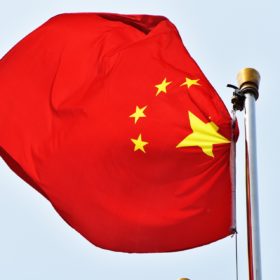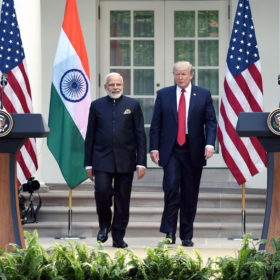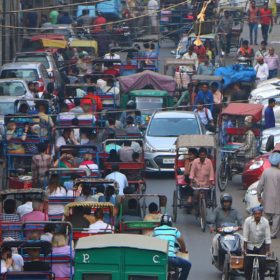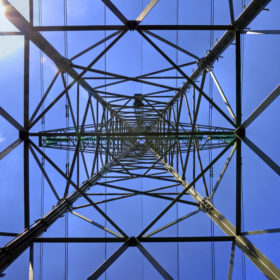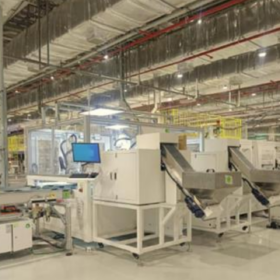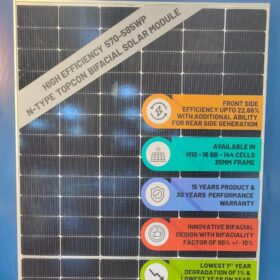Bifacial beats Trump’s tariffs
Federal trade authorities in the U.S. have ruled bifacial solar modules will no longer be subject to the Section 201 ruling which applies a 25% tariff to solar panel imports.
India’s solar cell exports to USA lose preferential treatment
Having acted against Turkey, the Trump administration has removed India too from the list of nations exempt from import tariffs on solar cells and modules.
Protectionist measures working as Chinese export destinations shift
While the world’s biggest solar manufacturers are confident there are plenty of alternative markets for a rising volume of panel exports, the message spelled out by first-quarter shipment figures is that protectionism works.
Adani Solar eyes 50% market share within 2 years
Chinese solar modules currently meet around 80% of India’s demand. Domestic modules face stiff competition from those imported from China, which cost 10-20% less, even after the imposition of safeguard duties.
India’s solar industry digests the election results
With Narendra Modi’s government stunning pollsters with another huge victory, the solar industry expects renewable power momentum to be maintained with steps including anti-dumping duty on solar module imports, a national policy for rooftop solar and an emphasis on easing private-sector participation in the power sector.
China reveals details of first 15 GW of grid parity solar
Some 168 projects will be developed across 16 provinces free from central government subsidy. The fact the average capacity of such projects has tumbled indicates Beijing’s plan to accelerate the arrival of subsidy free solar may be on track.
US-China trade war may lead to dumping of Chinese steel into India
The contraction in Chinese trade flows to the U.S. is likely to result in the dumping in India of Far Eastern electronic and electrical components as well as steel, iron, chemicals and plastic products.
China confirms FIT level payments – but they will be ‘subject to competition’
The Beijing authorities have confirmed the payment levels to be made according to type of project and region from July onwards but an auction process will be involved so the figures are for guidance only. No decision has yet been made on the 30 GW of capacity added since the end of May.
Alternative charging options drive down battery costs for ebuses
All-electric buses will cost the same as diesel options by 2030 – and possibly earlier – according to research into the global EV market which highlighted the potential for India to follow China’s lead in the sector.
China sheds light on transition to subsidy-free solar
An emphasis on grid-parity PV has been hammered out in the latest policy document to emerge after several weeks of haggling in Beijing. Chinese analyst AECEA says the success of the subsidy-free effort will hinge on the ability of power companies to transmit and guarantee consumption of the power generated by new projects.
